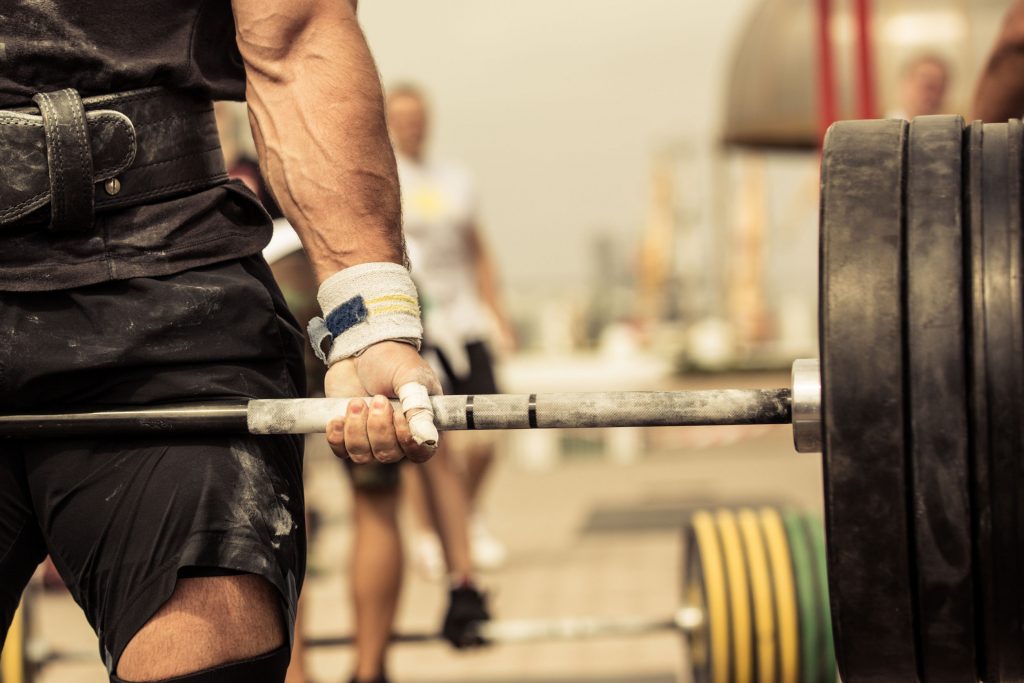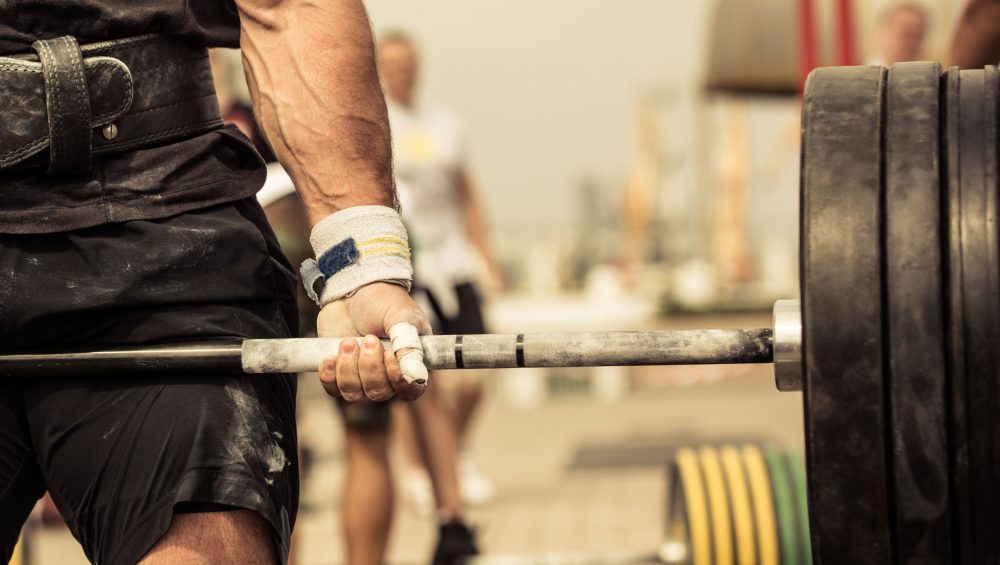NOTE: This post is a bit of a face-lift from a similar post I wrote last year.
I’ve noticed a growing trend in recent months in the fitness community and it’s something that’s been grinding my gears.1
It seems it’s become trendy or a “thing” for some (not all) people to bash certain exercises – specifically, from a more general standpoint, lifting appreciable weight – due to the stress it can cause. I’ve been noticing this trend a lot in the comments section of this site and in the comment sections of other training forums I frequent. It’s certainly not at pandemic levels or anything, but it’s happening enough where I felt compelled to get a little ranty today.

“Don’t do this exercise because it’ll stress your knees.”
“It’s probably best to avoid lifting heavy weights because it’ll stress your joints and back.”
“You shouldn’t do “x” or “y” because it’ll cause too much stress.”
Blah, blah. blabbidy, blah, blah.
Now, let me preface everything by saying I understand it’s not everyone’s goal to get strong(er), hoist barbells and dumbbells every which way, and/or, I don’t know, make people clench their sphincters when they watch you bench press.
It’s not everyone’s bag, and that’s cool.
Likewise, any conversation of this magnitude should come with the assumption that whatever exercise or modality we’re referring to – squats, overhead pressing, juggling chainsaws – is, in fact, an appropriate fit for someone based off their goals, ability level, taking into account their current/past injury history, and individual anthropometry.
Moreover, we can make the case for any exercise having an inherent risk, if not tinkering on the edge of dangerous, if it over-steps someone’s ability level, is performed incorrectly, and/or is done with too much volume.
- A newbie performing conventional deadlifts on Day #1 probably won’t be a good fit.
- A heavy back squat performed with an excessively rounded back = stop blaming the exercise and fix your technique, Sherlock.
- Even if someone has immaculate dynamic control of their rotator cuff, spends time addressing soft-tissue quality, and also stays on top of their ability to upwardly rotate their scapulae, even if they do all of that (which is saying a lot), the acromion space will always narrow when you overhead press. Doing too much of it (volume) can still cause shoulder issues.2
That said, it’s not lost on me there’s a heavy bias on my end given I’m a strength coach. I like getting people strong. It’s what I do and it’s what I’m about.
Well, that, and crushing ice-cream.
And still trying to figure out why Carrie broke up with Aidan in Season 4 of Sex and the City.3
I have rarely found anything negative that results from getting someone stronger; whether we’re referring to helping an athlete perform better in his or her’s respective sport, helping a grandmother be able to carry her own groceries, or helping anyone be less fragile.
Everyday life is filled with trials, tribulations, tripping over Legos on the carpet, and general levels of shitstormery. What harm can come from getting stronger and to be better equipped and prepared for it?
Yet, time and time again I witness people’s backlash towards strength training – or any sense of straining – by using the excuse “it’s too much risk at stressing the body.”
Ummmmmm.
The point of exercise, and more specifically, lifting weights, is to stress the body.
Strain, effort, and yes, even some level of discomfort is warranted, nay, needed, in order to make the body more resilient and ready for sport AND life.
I’m not making this stuff up either.
There are laws (meaning, proven, undeniable facts backed by science) to back me up:
BOOM
Wolff’s Law – States that bone in a healthy person or animal will adapt to the loads under which it is placed.
As a corollary to Wolff’s Law there’s also the term known as Minimal Essential Strain (MES) which also states there’s a threshold (strain) that must be reached and repeated often enough to signal to the osteoblasts to travel to the area of strain and lay down collagen to increase the strength of the bone.
Davis’s Law – Describes how soft tissue models along imposed demands.
I-Just-Threw-My-Face-Into-a-Brick-Wall-Because-I-Became-Dumber-For-Having-Listened-To-What-You-Just-Said Law – Describes the spontaneous reaction that results when someone says something stupid.4
We can’t always live in a bubble or “safe space” filled with non-threatening exercise, pink dumbbells, and Adele radio playing on Pandora.
It behooves us to teeter with end-ranges of motion and to sometimes tinker with someone’s ability to just do more.
Lets take the squat.
A common argument against it – again, for some, not everyone – is that it should be avoided because it stresses the knees.
Well, when done incorrectly I’d agree.
There’s much that can go awry with the squat.
However, some trainers/coaches take it to delicate flower levels that I can’t begin to comprehend. To the point where, if there’s any deviation from perfect, they’ll start hyperventilating into a paper bag and shut the set down faster than you can say “When’s Season 3 of Stranger Things coming out?”
Sometimes you have to let people figure things out for themselves and stop over-coaching.
The knees caving in isn’t always bad.
“Caving” to neutral is a lot different than actually falling into knee valgus.
Don’t be so quick to pump the brakes on people.
Hell, the point of someone going to physical therapy is to do something physical. Those therapists who tend to get the best and most efficient results tend to be those that include strength & conditioning to compliment the clinical side of the equation.
If you’ve done your job as a coach and properly progressed your clients/athletes it’s okay to allow them to deviate from perfect. It’ll help them in the long run.
I’d make the case it’s beneficial to allow people to experience compromising positions anyways. That way they’ll know how to get out of them if or when they happen again (and they will).
It’s imperative to make the body do more work in order to adapt and make progress. To steal a quote from Nick Tumminello:
“It’s all about creating STRESS (to stimulate adaption) W/O DISTRESS (that exceeds one’s tolerance and causes injury).”
We need to challenge the body.
We need to stress it.
- I didn’t want to offend anyone with colorful language right out of the gate, but since the footnote area tends to be the non PG-13 section of the blog, what I really wanted to say was, “it really drives batshit motherfucking crazy.”
- This is an important point because I feel there is an inclination for trainers/coaches to get too “correctivy” with their clients/athletes. They’ll have someone breath into a balloon for 30 minutes to address positional breathing, yet won’t consider the obvious first step: maybe they’re just doing too much volume with a given exercise or program compared to their ability to recover from it?
- WHY CARRIE, WHY?????????
- Also describes what happens whenever I find out one of my high-school or college athletes have never heard of A Tribe Called Quest or GoodFellas.




